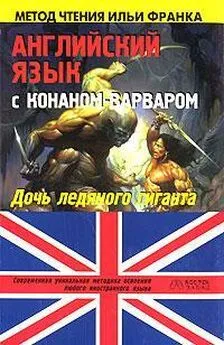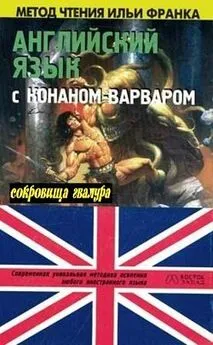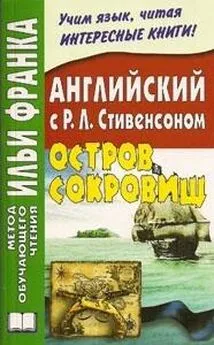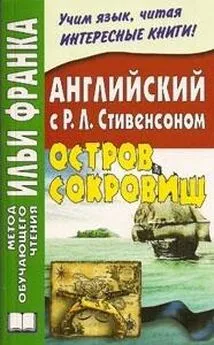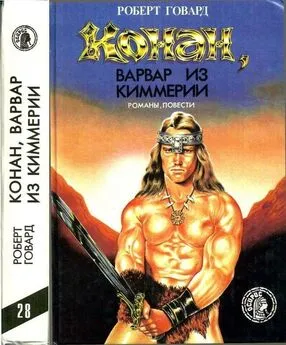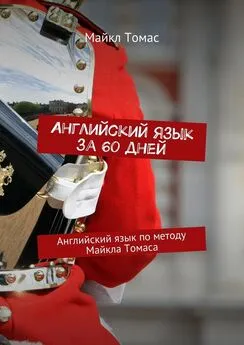Роберт Говард - Английский язык с Конаном-варваром
- Название:Английский язык с Конаном-варваром
- Автор:
- Жанр:
- Издательство:АСТ, Восток-Запад
- Год:2007
- Город:Москва
- ISBN:5-17-042032-3, 5-478-00503-7
- Рейтинг:
- Избранное:Добавить в избранное
-
Отзывы:
-
Ваша оценка:
Роберт Говард - Английский язык с Конаном-варваром краткое содержание
В книге предлагается произведения Роберта Е. Говарда, адаптированные (без упрощения текста оригинала) по методу Ильи Франка. Уникальность метода заключается в том, что запоминание слов и выражений происходит за счет их повторяемости, без заучивания и необходимости использовать словарь. Пособие способствует эффективному освоению языка, может служить дополнением к учебной программе. Предназначено для студентов, для изучающих английский язык самостоятельно, а также для всех интересующихся английской культурой.
Метод чтения Ильи Франка
Содержание:
Дочь ледяного великана
Проклятие монолита
Замок ужаса
За Черной рекой
Тени Замбулы
Английский язык с Конаном-варваром - читать онлайн бесплатно полную версию (весь текст целиком)
Интервал:
Закладка:
"But what was that — that thing you killed in the altar-hut?" asked Balthus, with a shiver at the memory of the dim-seen horror (но что это было — та тварь, /которую/ ты убил в хижине с алтарем? — спросил Балтус с содроганием при воспоминании о неясно видимом чудище).
"One of Zogar's gods (один из богов Зогара). One of Jhebbal's children that didn't remember and had to be kept chained to the altar (один из детей Джеббала, которые не помнили и должны были быть прикованными к алтарю). A bull ape (самец обезьяны). The Picts think they're sacred to the Hairy One who lives on the moon — the gorilla-god of Gullah (пикты думают, /что/ они посвящены Волосатому, который живет на луне — горилла-бог Гула).
"It's getting light (/оно/ светает). Here's a good place to hide until we see how close they're on our trail (вот хорошее место, /чтобы/ спрятаться, пока мы /не/ увидим = узнаем , как близко они подобрались к нам / идут по нашему следу). Probably have to wait until night to break back to the river (возможно, придется подождать до ночи, чтобы повернуть назад к реке)."
bull [bʋl], gorilla [ɡəˈrɪlə], probably [ˈprɔbəblɪ]
"But what was that — that thing you killed in the altar-hut?" asked Balthus, with a shiver at the memory of the dim-seen horror.
"One of Zogar's gods. One of Jhebbal's children that didn't remember and had to be kept chained to the altar. A bull ape. The Picts think they're sacred to the Hairy
One who lives on the moon — the gorilla-god of Gullah.
"It's getting light. Here's a good place to hide until we see how close they're on our trail. Probably have to wait until night to break back to the river."
A low hill pitched upward, girdled and covered with thick trees and bushes (невысокий холм тянулся вверх, окруженный и покрытый густыми деревьями и кустами). Near the crest Conan slid into a tangle of jutting rocks, crowned by dense bushes (возле вершины Конан скользнул в путаницу выступающих камней, увенчанных густыми кустами). Lying among them they could see the jungle below without being seen (лежа между ними, они могли видеть джунгли внизу, не будучи видимыми). It was a good place to hide or defend (это было хорошее место, /чтобы/ прятаться или обороняться). Balthus did not believe that even a Pict could have trailed them over the rocky ground for the past four or five miles (Балтус не верил, что даже пикт мог выследить их по скалистой почве на протяжении прошлых четырех или пяти миль), but he was afraid of the beasts that obeyed Zogar Sag (но он боялся тварей, которые повиновались Зогар Сагу). His faith in the curious symbol wavered a little now (его вера в необычный символ немного поколебалась теперь). But Conan had dismissed the possibility of beasts tracking them (но Конан отбросил возможность преследования их зверями = что звери их преследуют ).
upward [ˈʌpwəd], without [wɪˈðaut], faith [feɪƟ]
A low hill pitched upward, girdled and covered with thick trees and bushes. Near the crest Conan slid into a tangle of jutting rocks, crowned by dense bushes. Lying among them they could see the jungle below without being seen. It was a good place to hide or defend. Balthus did not believe that even a Pict could have trailed them over the rocky ground for the past four or five miles, but he was afraid of the beasts that obeyed Zogar Sag. His faith in the curious symbol wavered a little now. But Conan had dismissed the possibility of beasts tracking them.
A ghostly whiteness spread through the dense branches (призрачная белизна распростерлась сквозь густые ветви); the patches of sky visible altered in hue, grew from pink to blue (лоскутки видимого неба меняли оттенки, переходили от розового к синему). Balthus felt the gnawing of hunger, though he had slaked his thirst at a stream they had skirted (Балтус почувствовал терзание голода, хотя он утолил свою жажду у ручья, /который/ они обошли; skirt — юбка; полоса, кайма; to skirt — обходить кругом, идти вдоль края ). There was complete silence, except for an occasional chirp of a bird (была = стояла абсолютная тишина, за исключением щебетанья птицы время от времени). The drums were no longer to be heard (барабанов больше не было слышно). Balthus' thoughts reverted to the grim scene before the altar-hut (мысли Балтуса вернулись к мрачной сцене перед хижиной с алтарем).
hue [hju: ], gnaw [nɔ: ], thirst [Ɵə: st]
A ghostly whiteness spread through the dense branches; the patches of sky visible altered in hue, grew from pink to blue. Balthus felt the gnawing of hunger, though he had slaked his thirst at a stream they had skirted. There was complete silence, except for an occasional chirp of a bird. The drums were no longer to be heard. Balthus' thoughts reverted to the grim scene before the altar-hut.
"Those were ostrich plumes Zogar Sag wore," he said (это были страусиные перья, /которые/ носил = на Зогар Саге, — сказал он; to wear — носить (одежду) ). "I've seen them on the helmets of knights who rode from the East to visit the barons of the marches (я видел их на шлемах рыцарей, которые скакали с востока, /чтобы/ навестить баронов марки; to ride — скакать, ехать верхом ). There are no ostriches in this forest, are there (в этом лесу нет страусов, есть там = не так ли )?"
wore [wɔ: ], knight [naɪt], visit [ˈvɪzɪt]
"Those were ostrich plumes Zogar Sag wore," he said. "I've seen them on the helmets of knights who rode from the East to visit the barons of the marches. There are no ostriches in this forest, are there?"
"They came from Kush," answered Conan (они пришли = попали сюда из Куша, — ответил Конан). "West of here, many marches, lies the seashore (на западе отсюда, /во/ многих переходах лежит берег моря). Ships from Zingara occasionally come and trade weapons and ornaments and wine to the coastal tribes for skins and copper ore and gold dust (корабли из Зингары время от времени приходят и обменивают оружие, украшения и вино у прибрежных племен на шкуры, медную руду и золотой песок). Sometimes they trade ostrich plumes they got from the Stygians (иногда они меняют страусиные перья, которые они получили у стигийцев), who in turn got them from the black tribes of Kush, which lies south of Stygia (которые в свою очередь получили их от черных племен Куша, который лежит = находится южнее Стигии). The Pictish shamans place great store by them (пиктские шаманы платят много за них; to place — вкладывать, вкладывать деньги / капитал делать, размещать заказ; great store — большое количество, большие средства ). But there's much risk in such trade (но есть большой риск в такой торговле). The Picts are too likely to try to seize the ship (пикты вполне могут попытаться захватить корабль; to be likely to V — вероятно сделать что-л. ). And the coast is dangerous to ships (а побережье опасно для кораблей). I've sailed along it when I was with the pirates of the Barachan Isles, which lie southwest of Zingara (я ходил [41] Не забывайте, что моряки не говорят «плавать». Они употребляют слово «ходить». При этом норовят сострить по поводу того, что плавает. Поэтому: to sail — ходить под парусами, ходить на корабле.
вдоль него, когда я был с пиратами Барахских островов, которые лежат на юго-востоке от Зингары)."
weapon [ˈwepən], Isles [ˈaɪlz], lie [laɪ]
"They came from Kush," answered Conan. "West of here, many marches, lies the seashore. Ships from Zingara occasionally come and trade weapons and ornaments and wine to the coastal tribes for skins and copper ore and gold dust. Sometimes they trade ostrich plumes they got from the Stygians, who in turn got them from the black tribes of Kush, which lies south of Stygia. The Pictish shamans place great store by them. But there's much risk in such trade. The Picts are too likely to try to seize the ship. And the coast is dangerous to ships. I've sailed along it when I was with the pirates of the Barachan Isles, which lie southwest of Zingara."
Balthus looked at his companion with admiration (Балтус посмотрел на своего спутника с восхищением).
"I knew you hadn't spent your life on this frontier (я знал, /что/ ты не провел свою жизнь на этой границе). You've mentioned several far places (ты упомянул несколько далеких мест). You've traveled widely (ты путешествовал широко = много )?"
frontier [ˈfrʌntɪə], mention [ˈmenʃn], widely [ˈwaɪdlɪ]
Balthus looked at his companion with admiration.
"I knew you hadn't spent your life on this frontier. You've mentioned several far places. You've traveled widely?"
"I've roamed far; farther than any other man of my race ever wandered (я странствовал далеко, дальше, чем когда-либо скитался любой другой человек моей расы; to roam, to wander — странствовать, скитаться, бродить ). I've seen all the great cities of the Hyborians, the Shemites, the Stygians, and the Hyrkanians (я видел все великие города хайборийцев, шемитов, стигийцев и гирканцев). I've roamed in the unknown countries south of the black kingdoms of Kush, and east of the Sea of Vilayet (я странствовал в = по неизвестным странам южнее черных королевств Куша и на востоке от моря Вилайет). I've been a mercenary captain, a corsair, a kozak , a penniless vagabond, a general — hell (я был капитаном наемников, корсаром, козаком , нищим бродягой, генералом — ад = проклятие ), I've been everything except a king of a civilized country, and I may be that, before I die (я был всем, кроме короля цивилизованной страны, и я, может, буду им: «тем», прежде чем /я/ умру)." The fancy pleased him, and he grinned hardly (выдумка доставила ему удовольствие, и он ухмыльнулся через силу). Then he shrugged his shoulders and stretched his mighty figure on the rocks (затем он пожал /своими/ плечами и распростер свою могучую фигуру на камнях). "This is as good a life as any (это почти такая же жизнь, как и всякая /другая/; as good as — все равно что, почти, фактически ). I don't know how long I'll stay on the frontier; a week, a month, a year (я не знаю, как долго я останусь = пробуду на границе — неделю, месяц, год). I have a roving foot (я непоседа: «я имею бродячую ногу»). But it's as well on the border as anywhere (но /это/ так же хорошо на границе, как где бы то ни было)."
Читать дальшеИнтервал:
Закладка:
